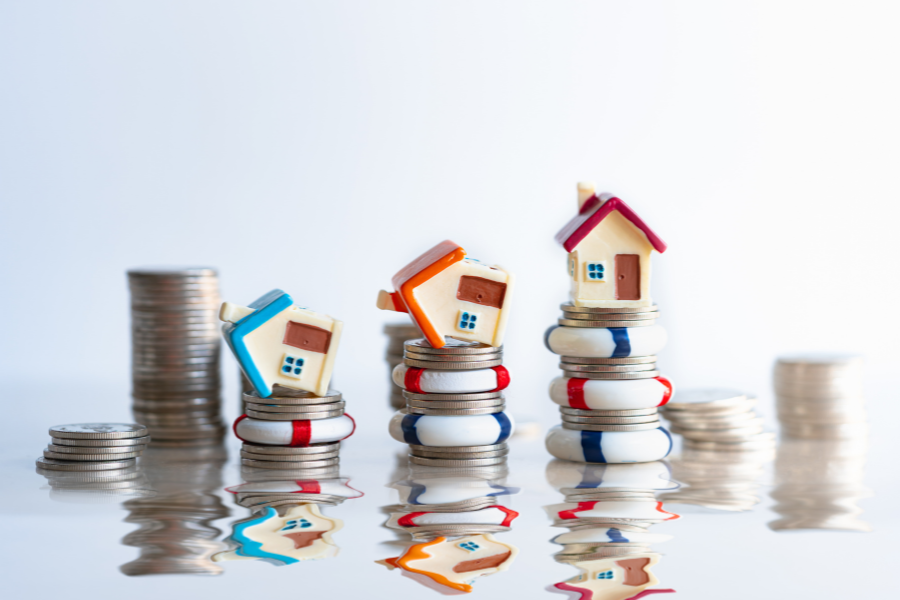Why Homesellers Don’t Get the Price They Want for Their Home
Selling a home is a significant financial transaction that requires careful consideration and planning. Many homeowners have a specific price in mind when they decide to sell their property, but unfortunately, they often find it challenging to achieve that desired price.
There are several factors that contribute to homesellers not getting the price they want for their home.
In this article, we will explore some of these factors and provide insights into how sellers can increase their chances of securing a favorable selling price.
1. Overpricing
One of the primary reasons why homesellers fail to get the price they desire is overpricing their property. It’s natural for homeowners to have an emotional attachment to their homes and believe that it is worth more than the market value.
However, setting an unrealistic asking price can deter potential buyers and lead to prolonged listing times.
To avoid this pitfall, it is essential for homesellers to conduct thorough research and work with a qualified real estate agent. Agents can provide a comparative market analysis (CMA) that evaluates recent sales of similar properties in the area.
By setting a competitive and realistic price, sellers can attract more buyers and increase the likelihood of receiving offers close to their desired amount.
2. Poor Home Presentation
Another factor that can impact the selling price of a home is its presentation. When potential buyers visit a property, they form an immediate impression based on its visual appeal.
If the home is cluttered, poorly maintained, or in need of repairs, buyers may perceive it as less valuable and be reluctant to make higher offers.
To maximize the chances of securing the desired price, homesellers should invest time and effort in preparing their property for sale. This includes decluttering, deep cleaning, making necessary repairs, and enhancing curb appeal.
By presenting a well-maintained and visually appealing home, sellers can create a positive first impression and increase the perceived value of the property.
3. Ineffective Marketing
Even if a home is priced correctly and presented well, it may still not attract the right buyers if the marketing efforts are insufficient.
In today’s digital age, online listing platforms and social media play a crucial role in reaching potential buyers.
If homesellers do not effectively market their property or fail to utilize online platforms, they limit their exposure and reduce the chances of finding the right buyer at the desired price.
To address this issue, homesellers should collaborate with a real estate agent who has a strong marketing strategy.
Professional agents understand the importance of high-quality photographs, compelling property descriptions, and targeted advertising to reach the appropriate audience.
By leveraging various marketing channels, sellers can increase the visibility of their home and attract more potential buyers, thereby improving the likelihood of receiving competitive offers.
4. Market Conditions
The state of the real estate market can greatly influence a homeseller’s ability to achieve the desired price. In a buyer’s market, where there is an abundance of available properties and fewer buyers, sellers may face increased competition and downward pressure on prices.
On the other hand, in a seller’s market, where demand exceeds supply, homesellers may have more negotiating power and the potential to sell at or above their asking price.
While market conditions are beyond a seller’s control, being aware of the prevailing trends is crucial. Real estate agents can provide valuable insights into the current market dynamics and advise sellers on the best strategies to adopt.
By understanding the market conditions, homesellers can set realistic expectations and adjust their pricing and negotiation strategies accordingly.
5. Lack of Flexibility
A rigid and inflexible approach to negotiations can often hinder a homeseller from achieving their desired price.
It is essential to be open to reasonable offers and engage in constructive discussions with potential buyers. Stubbornly holding onto a fixed price expectation may alienate potential buyers and lead to missed opportunities.
Homesellers should be prepared to negotiate and consider offers that are slightly below their initial asking price.
By demonstrating flexibility and a willingness to work with buyers, sellers can maintain the momentum of the negotiation process and increase the chances of reaching a mutually beneficial agreement.
Additionally, homesellers should be open to feedback and constructive criticism from real estate agents or potential buyers.
If there is a consistent pattern of feedback regarding certain aspects of the property that may be affecting its perceived value, sellers should be willing to address these concerns.
Whether it involves making minor improvements or adjusting the staging, taking proactive steps to address feedback can help enhance the property’s appeal and increase the likelihood of receiving offers closer to the desired price.
6. Lack of Preparation for Home Inspections
Home inspections are a standard part of the homebuying process, and the results can significantly impact the final selling price.
If a home inspection reveals significant issues or necessary repairs, buyers may request a price reduction or credits to account for these expenses.
Failure to prepare for home inspections can lead to unexpected negotiations and potential reductions in the desired selling price.
To avoid this situation, homesellers should consider conducting a pre-listing inspection. This allows them to identify and address any major issues beforehand, increasing the likelihood of a smoother transaction and minimizing the potential for price negotiations due to inspection-related concerns.
By proactively addressing repairs or disclosing known issues upfront, homesellers can instill confidence in potential buyers and maintain the integrity of the asking price.
7. Inadequate Timing and Market Exposure
The timing of when a home is listed for sale can impact its selling price. Seasonal trends, economic conditions, and local market factors can all influence buyer demand and pricing dynamics.
Homesellers who are not strategic in choosing the right time to list their property may miss out on potential buyers and fail to achieve their desired price.
Additionally, the duration of the listing can also impact the selling price. Homes that remain on the market for an extended period may develop a stigma, leading buyers to question their value or assume that there are underlying issues.
It is crucial for homesellers to work closely with their real estate agent to determine the optimal timing for listing their property and develop a comprehensive marketing plan to maximize exposure.
By aligning the listing with favorable market conditions and implementing a robust marketing strategy, homesellers can increase their chances of attracting motivated buyers and receiving offers that meet or exceed their expectations.
Conclusion
Achieving the desired selling price for a home requires careful consideration of various factors and strategic planning.
Overpricing, poor home presentation, ineffective marketing, market conditions, inflexibility in negotiations, lack of preparation for inspections, and inadequate timing can all contribute to homesellers falling short of their price expectations.
To maximize the chances of selling at the desired price, homeowners should approach the selling process with a realistic mindset, collaborate with a knowledgeable real estate agent, and take proactive steps to enhance their property’s appeal.
By setting a competitive price, presenting the home in its best light, implementing effective marketing strategies, being flexible in negotiations, preparing for inspections, and strategically timing the listing, homesellers can increase their chances of achieving a successful sale at the desired price.


